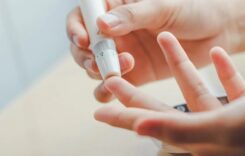Clinical preliminaries for Covid immunizations ought to remember assessment of any potential impacts for ladies’ monthly cycles – if by some stroke of good luck in light of the fact that such countless ladies are stressed over potential issues, a British master contended Wednesday.
But on the other hand there’s proof the safe reaction provoked by the two immunizations and viral diseases can briefly influence feminine cycles, so concentrating on these impacts is significant, Dr. Victoria Male, a conceptive expert at Imperial College London, wrote in the BMJ.
“Antibody aversion among young ladies is generally determined by bogus cases that Covid-19 immunizations could hurt their odds of future pregnancy,” Male composed.
“Neglecting to completely explore reports of feminine changes after inoculation is probably going to fuel these apprehensions,” she added.
“On the off chance that a connection among immunization and feminine changes is affirmed, this data will permit individuals to get ready for conceivably adjusted cycles. Clear and believed data is especially significant for the people who depend on having the option to foresee their feminine cycles to either accomplish or stay away from pregnancy.”
The US National Institutes of Health said last month it was burning through $1.67 million to assist five with investigating groups concentrate on the expected impacts of Covid-19 immunizations on period.
“Various components can cause transitory changes in the feminine cycle, which is controlled by complex communications between the body’s tissues, cells and chemicals,” the NIH’s National Institute of Child Health and Human Development said in an assertion gave August 30.
“Invulnerable reactions to a COVID-19 antibody could influence the interchange between insusceptible cells and signs in the uterus, prompting transitory changes in the period. Different variables that might cause feminine changes incorporate pandemic-related pressure, way of life changes identified with the pandemic, and disease with SARS-CoV-2 (the infection that causes COVID-19).”
Male said the signs were that these changes, on the off chance that they happen, are impermanent and innocuous.
“A great many people who report a change to their period after inoculation find that it gets back to typical the accompanying cycle and, critically, there is no proof that Covid-19 immunization unfavorably influences fruitfulness,” she composed.
“Feminine changes have been accounted for after both mRNA and adenovirus vectored Coronavirus antibodies, recommending that, in case there is an association, it is probably going to be a consequence of the invulnerable reaction to immunization instead of a particular immunization part,” she added.
“Inoculation against human papillomavirus (HPV) has likewise been related with feminine changes. For sure, the monthly cycle can be influenced by invulnerable initiation in light of different improvements, including viral contamination: in one investigation of bleeding ladies, around a fourth of those tainted with SARS-CoV-2 experienced feminine disturbance.”
Yet, concentrating on these impacts ought not be an untimely idea, Male said.
Dr. Jo Mountfield, VP of the UK’s Royal College of Obstetricians and Gynecologists, said it’s reasonable ladies would be worried about such changes.
“There is no proof to recommend that these transitory changes will anily affect an individual’s future ripeness, or their capacity to have youngsters. Get immunized as the best security against Covid. This is particularly significant in case you are arranging a pregnancy, as we probably are aware unvaccinated pregnant ladies are more in danger of turning out to be truly sick from COVID-19,” Mountfield said in an assertion.
“We support calls for more exploration to comprehend why ladies might be encountering changes to their feminine cycle subsequent to having the immunization.”










